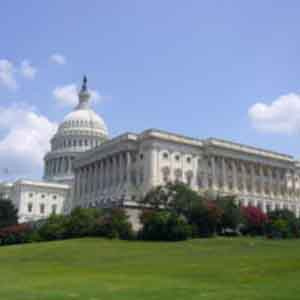US Economic Crisis: A Suitable Ground for Election Campaign
The scope of global economic and financial crisis is further widening every day and envelops geographical borders of America.
Reza Majidzadeh, economic researcher comments on this.

The scope of global economic and financial crisis is further widening every day and envelops geographical borders of America. The crisis has made decision makers in the United States to review various solutions to check its worsening repercussions and eventually come up with a $700b bailout plan which was adopted by the Congress in a second voting. On October 5, the House of Representatives voted 263 to 171 to pass the largest US government economic intervention since the 1930s, after sparking market and political turmoil by rejecting an earlier version of the bailout a week earlier.
To discuss the dimensions of the present global economic and financial crisis, Iran Diplomacy interviewed Reza Majidzadeh, a researcher in economic affairs.
Q: What were the obstacles in the way of adoption of the economic rescue package by the US Congress?
A: One obstacle related to the US presidential polls. At present the Democrats maintain the majority at the Congress and the debate on adoption or dismissal of the bailout package could be a good exercise of election campaign because they had announced that the main reason for their opposition to the motion was the role of American taxpayers.
Another obstacle was the procedure of government interventions in bankruptcy of financial institutions. The bankruptcy of Lehman Brothers investment bank did not spark any reaction from the Bush Administration. The $70b bailout package was submitted to the Congress following the bankruptcy of several other American companies. As far as financial market is concerned if the government takes immediate action in favor of bankrupt companies there is a risk they may continue operation with more peace of mind and less concern in the future which could financially hurt their investors. For the same reason, governments try not to intervene and show reaction immediately.
The Congress dismissed the motion because it wanted to provide the $700b in financial assistance in three stages because a single payment would increase the moral risks, i.e. these institutions would become more risk- prone to the disadvantage of citizens. The Congress believes the next stage of payment should be made after monitoring positive developments in the market and after investor confidence is restored in order to avoid the moral complications. In any case, the main obstacle in the way of adoption of the rescue plan was an appropriate ground for US presidential election campaign.
Q: Some White House experts maintain that adoption of the bailout plan would cause a severe economic recession. What is your opinion?
A: The reason for this concern is that with this enormous financial aid, the administration would cause a huge obligation for the American people and the US national debt would increase tremendously because it is not clear what would be the value of the government assets to be gained by taking this measure. On the other hand, the interest rate would go up which means more unemployment and less economic growth. These are the main concerns of the US economic experts. But if the plan succeeds inflation would be checked, the US dollar would be boosted, the US negative balance against its largest trade partner, namely China would go up and exports too would come to the rescue of the economy.
Q: What would be the impact of the current crisis on the oil market and the Iranian economy as well?
A: As long as the current economic crisis does not affect economic growth of the countries whose economic chain is linked to the US economy it would not affect the oil market very much. But as soon as the crisis affects economic growth in those countries then the demand for oil would drop dramatically and the oil exporting countries, such as Iran would sustain big losses. The biggest threat against Iran would be to suffer from the dire consequences of the Dutch Disease as a result of falling oil prices. 
